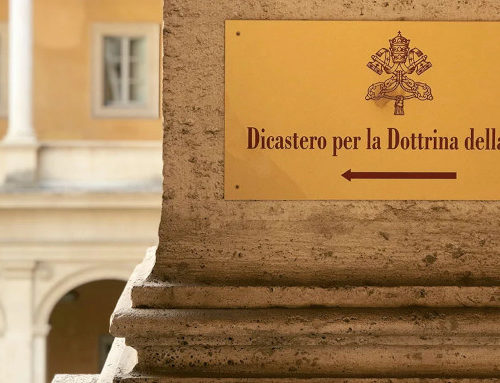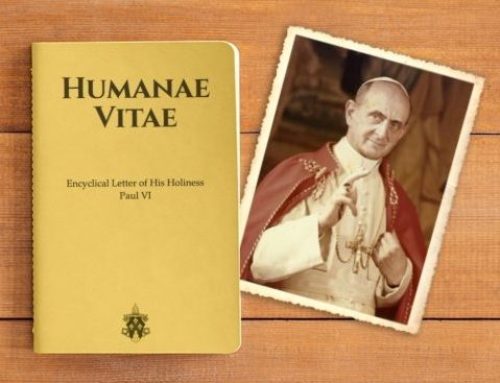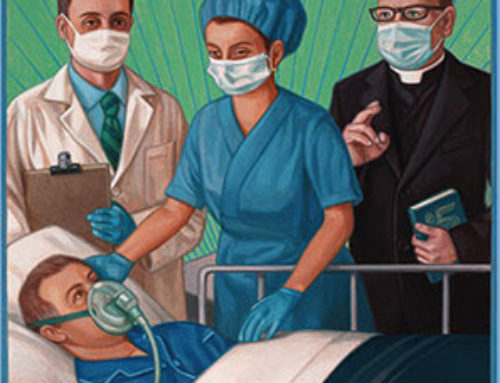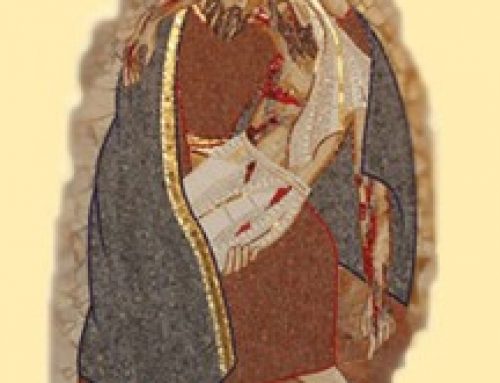A Letter from the Congregation for the Doctrine of the Faith —
Anne Lastman
“In a way which respects and promotes the intrinsic human dignity of persons who are ill” (Samaritanus Bonus p5) These words open our hearts to the coming words of joy and encouragement in our lives as we honour our duty of care for and of loving our neighbour.
Human dignity which is proper and intrinsic to every human being by the fact that they are human beings (SB p6) is challenged when we forget that the suffering one is designed in the image and likeness of God and whose own dignity seems diminished but it never is so.
“In suffering this is concealed by the immensity of a specific mystery” (SB p9).

The good Samaritan not only draws near to the assaulted victim he encounters along the road and tends to the wounds as much as he can, but then also goes further and takes full responsibility for the victim. (SB p10) and in this we can be reminded of the words of Jesus who would have had this thought in mind “whatever you do to the least of these you do it to me” (Mt 25:4-45)
Weakness makes us conscious of our own vulnerability and turns our thoughts to the sick person and helps us to see our dependence not only on each other but on God, and in our weakness, we see the need to respect the very dignity of our brother/sister created in the same way as each of us.
In the “Good Samaritan” (Lk 10:25-37) we see the answer to the question “am I my brother’s keeper?” (Gn 4:1-13) with the response that is a resounding Yes.
Yes, you are your brother’s keeper especially if your brother’s dignity is perceived weakened by life’s circumstances. The perception is wrong. His dignity is never diminished.
As we meditate on the parable of the Good Samaritan we see in the ensuing actions and behaviour to Jesus’ response to Cain’s question and not only that but in such a way as not to leave any doubt about the response to the question.
“The Good Samaritan not only draws near to the man he finds half dead but takes responsibility for him” (SBp10). The Samaritan not only responds to the call written on his heart (Jer31:31-33) but shows that he knows “what it means to feel alone, neglected and tormented by the prospect of physical pain” (SB p13)
In his understanding of the dignity of his brother traveller on his life’s journey and having fallen prey to wickedness of other individuals, the Samaritan responds with all means at his disposal. Unlike those who walked past. Turned the other way. Moved far from him so that suffering would not disturb them, the Samaritan instead walks towards the suffering.
This not only by drawing close to the victim but importantly takes over completely the care of the victim stranger. Cleaning and binding his wounds, easing pain as much as he could but taking control of the stranger so that no further wounds would be inflicted. To this end he ensures the man’s ongoing care by placing him in a place where he would be safe, and further by speaking with the innkeeper and ensuring that all care would be taken of the wounded one by promising that on his return all expenses will be met by him.
This parable not only speaks to “Am I my brother’s keeper” but also about the Samaritan himself.
Who was the Samaritan? Historically we can say that he was a member of a group of Israelites who descended from the tribes of the Northern Kingdom and out of the tribe of Ephraim and Manasseh, Levi and priestly line of Aaron. This breakaway group believed that Mt Gerizim is the holy mountain.
Samaritans were considered a breakaway group (or as we might say sect) from the Hebrew people and they worshipped and continue to worship on Mt Gerizim and believe that their worship is the correct worship, that is, unadulterated as post Babylonian exile worship.
Samaritans further claim descent from Joseph’s Sons Manasseh and Ephraim and a priesthood descendent from Aaron the brother of Moses.
Perhaps a different and deeper way of seeing the Good Samaritan is to again ask the question who is the Good Samaritan? With a beautiful answer it could be that Jesus is the Good Samaritan who comes upon a weakened and sin filled soul and stops and talks and tends to both physical and soul wounds and then leads the now assisted individual to an inn (the Church) and ensures the wounded one’s care, and makes a promise to the innkeeper to take care of the victim spending whatever is needed because on his return he will make up the difference. Jesus makes up the difference when a soul is in pain.
A promise that any shortcoming will be made up by Himself.
“The love of God never deserts us thanks to the one who promised to always be near” (SB p14)
Perhaps the greatest issue when assistance is not rendered is that human dignity inherent in the human being because of his divine origins has not been recognised or even has even been denied and a crime against life and an assault on humanity (SBp27) has been done and dignity, an attribute of divine life, has been assaulted.
The Good Samaritan is a parable “bonus” because it brings before the eyes of humanity, individuals, and society a clear explanation of the honour due to the human being-a being (no matter how dark or maybe even depraved) is inviolate because the breath of God has been breathed into him. A being whose dignity is imprinted in their humanity and because of this, a respect is owed to the person as respect is expected and owed to oneself “love your neighbour as you love yourself” (Mk: 12:31) and within the parable Jesus adds “Go and do likewise” (Lk 10:37) Love like the Samaritan Bonus.
This parable in situ
Not long ago this parable was experienced in my own life.
During a seizure as I was walking across a main street in city of Melbourne I tripped/collapsed to the ground. Luckily, I had nearly completed the crossing and was at kerbside. As I came to and still on ground, I noticed well-dressed males and females walking by. Not a word or hand offered.
Walking past me and around me and even staring down at me, turning their eyes from me as if not to be disgusted. Some even moved to avoid me. In stunned confusion I lay and then sat there when suddenly a “Good Samaritan” stopped to render assistance. He helped lift me up and took me onto the pavement and sat me down with my back leaning against a shop window. He collected my bag and scattered bag contents and sat next to me talking quietly and gently. He wanted to call an ambulance but as I knew what had happened, I said no I didn’t need one just a little time. As full consciousness returned, I turned and looked at my “Samaritan.” No stilettos there. No Maxwell Scott tan leather briefcase. No perfectly tailored Armani suit but instead long straggly matted hair, (not too clean and well cut) old clothing which had seen better days. Shoes which also had seen much better days and oh so many tattoos on face, neck, visible part of arms, exposed flesh covered in that ink, but beyond this, a voice so gentle it could have been an angel. Even sitting there, I was reminded of the Good Samaritan and the parable now made sense. I could understand what Jesus meant when he told this parable.
My Samaritan sat with me and waited whilst I regained composure, helped me up and asked if I needed assistance to get to where I was going. When I said no thank you, I am fine now, he simply smiled and turned and walked away amidst the other people.
A lesson was learned by me that day, the Samaritan visits not as we expect but, in a manner, unrecognizable. As scriptures say “some have entertained angels unawares.” (Heb 13:2) My tattooed angel stopped and helped and left. The ones expected to stop and help didn’t.
For me that day my Good Samaritan wore old and dirty clothing, shoes with so many holes, hair that was matted and long and oh so many tattoos (I didn’t like tattoos till then). It was not the well, and nice and even expected well-mannered, helpful nicely attired person who stopped to render assistance but an angel passing by looking like the Samaritan of our story of long ago. Like the biblical Good Samaritan, my Samaritan is considered an outcast whose dignity under his very poor appearance is considered very diminished, however my Samaritan’s dignity was indeed very undiminished and shone through.
Not a Levite, not priest, not stilettoed executive, or Armani attired executive with his leather briefcase but a tattooed, dirty old clothed, straggly haired man of indeterminate age and appearance. Except the bluest of blue eyes.








